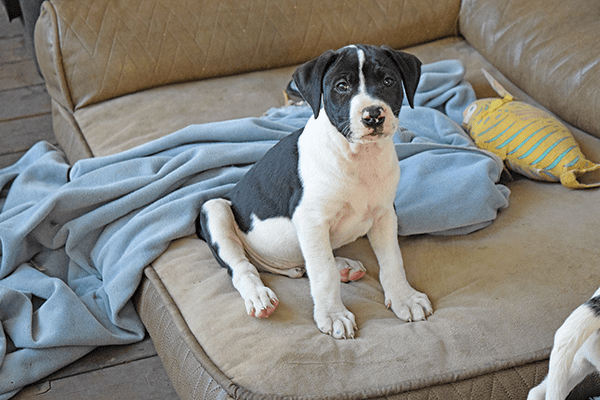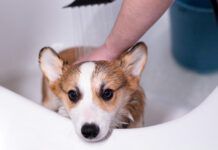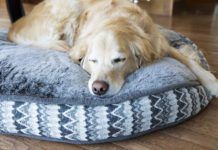The “Five Freedoms,” a set of standards for humane animal care, have long been internationally respected and embraced by animal protection organizations, including the American Society for the Prevention of Cruelty to Animals, Royal Society for the Prevention of Cruelty to Animals, Humane Society of the United States, and many more. The American Humane Association calls the Five Freedoms the gold standard of animal welfare.
The original guidelines were developed in response to a 1965 United Kingdom Government report on livestock husbandry. Each of the Freedoms was followed by a “Provision” that explained how the goal could be met. Initially focused on livestock, the application of these five principles of care has been generalized to include the keeping of companion animals, too.
The Five Freedoms and Correlating Five Provisions
These are the Five Freedoms and Five Provisions as currently accepted worldwide:
- Freedom from hunger or thirst, provided by ready access to fresh water and a diet to maintain full health and vigor.
- Freedom from discomfort, provided by an appropriate environment, including shelter and a comfortable resting area.
- Freedom from pain, injury, or disease, provided by prevention or rapid diagnosis and treatment.
- Freedom to express (most) normal behavior, provided by sufficient space, proper facilities, and company of the animal’s own kind.
- Freedom from fear and distress, provided by ensuring conditions and treatment that avoid mental suffering.
Many of our agricultural practices still fall short of these standards. Sadly, even many companion-animal-keeping practices fall short in puppy mills, and even in some homes, shelters, and rescues.
An Even More Progressive Model: The Five Domains
More recently, a more progressive approach to animal welfare has been proposed – one that parallels the move toward more dog-friendly dog training. David J. Mellor,Ph.D., Director of the Animal Welfare Science and Bioethics Centre and professor of Animal Welfare Science at Massey University in New Zealand, developed and promotes a set of guidelines he calls the Five Domains. His model emphasizes maximizing our animals’ positive experiences, not just minimizing negative ones. This approach moves beyond animal welfare (taking care of an animal’s basic needs) to the modern, far more progressive and humane concept of animal well-being (ensuring the animal’s quality of life).
In a 2016 paper published in Animals (an international, peer-reviewed, open-access journal devoted entirely to animals, including zoology and veterinary sciences), Dr. Mellor stated, “A marked increase in scientific understanding over the last two decades now shows that the Five Freedoms do not capture, either in the specifics or the generality of their expression, the breadth and depth of current knowledge of the biological processes that are germane to understanding animal welfare and to guiding its management.”
Dr. Mellor more fully described his model in a 2017 paper also published in Animals. “The Five Domains Model is a focusing device to facilitate systematic, structured, comprehensive and coherent assessment of animal welfare,” he wrote. “The purpose of each of the five domains is to draw attention to areas that are relevant to both animal welfare assessment and management.”
Dr. Mellor proposed that there are five domains of critical importance for modern, humane animal keeping.
In order to provide clear guidance on beneficial objectives for animal welfare management, Dr. Mellor described correlating provisions in each of these domains. Here we list his Five Domains, followed by questions we developed to help you assess how well you might be meeting – or falling short of meeting – these provisions when caring for your own dogs.
1: Good Nutrition
Provide ready access to fresh water and a diet to maintain full health and vigor. Minimize thirst and hunger, and enable eating to be a pleasurable experience.
Self-assessment: Do you feed a good quality food that is also pleasant to taste for your dog? Do you add extra tasty tidbits, vary his diet and control the presence of any aversives while he eats, perhaps even incorporate scent work with his meals to make sure he has a pleasurable dining experience? Have water accessible at all times (except perhaps when he is sleeping)? Avoid the use of water or food deprivation as a training tool?
2: Good Environment
Provide shade/shelter or suitable housing, good air quality, and comfortable resting areas. Minimize discomfort and exposure, and promote thermal, physical, and other comforts.
Self-assessment: Do you make sure your dog always has access to areas with appropriate/comfortable temperature levels – heat in the winter and air conditioning in the summer? Does he have options to choose for himself how warm or cool he wants to be? If walking with your dog in heat or cold, do you provide various means for him to stay cool or warm as needed, depending on the dog: warm jackets, boots to protect paws from hot pavement, dampening his coat to allow for cooling evaporation?
3: Good Health
Prevent or rapidly diagnose and treat disease and injury, and foster good muscle tone, posture, and cardiorespiratory function. Minimize breathlessness, nausea, pain, and other aversive experiences and promote the pleasures of robustness, vigor, strength, and well-coordinated physical activity.
Self-assessment: Is your dog up-to-date on all necessary prophylactic treatments? Do you seek veterinary care promptly at the first sign of illness or injury? Do you consistently mitigate temporary or long-term pain or discomfort with appropriate analgesics? Is your dog fit, well-exercised, and in good weight, not over-crated or overweight?
4: Appropriate behavior
Provide sufficient space, proper facilities, congenial company, and appropriately varied conditions. Minimize threats and unpleasant restrictions on behavior and promote engagement in rewarding activities.
Self-assessment: Do you allow and encourage your dog to behave like a dog? Does he have regular opportunities to bark, dig, run around, jump on things, play, get wet, get dirty, and otherwise act like a dog – with you, and/or other dogs or individuals of other species, if he enjoys their company?
5: Positive Mental Experiences
Provide safe, congenial, and species-specific opportunities to have pleasurable experiences. Promote various forms of comfort, pleasure, interest, confidence, and a sense of control.
Self-assessment: Do you take him places he likes to go and encourage activities that engage his mind, challenge his creativity, give him choices, spark his curiosity, encourage him to think and problem-solve, build his confidence, and otherwise enhance his enjoyment of life?
Score Your Own Dog-Keeping
We would expect that Whole Dog Journal readers in general are doing a good job of providing for their animal companions’ welfare. Even so, we can all do some self-examination to ensure that we are doing as much as we possibly can to also ensure our animal companions’ well-being.
Take another look at the Five Domains and Provisions, and then do a critical self-examination of all the things you provide to enhance your own dog’s well-being. If you can honestly check off all five of the boxes, our hats are off to you: You are a dog-companion superstar and the champion of your dog’s well-being.
If, on the other hand, you identify some areas that need work, then get started on any needed changes – and kudos to you for your willingness to commit to providing your dog with the best life possible.







I agree 100%.
“… pleasant to taste for your dog …add extra tasty tidbits … vary his diet … incorporate scent work … make sure he has a pleasurable dining experience…”
When I read this I thought it was “The Goop For Dogs”. Out of touch. Non-pragmatic. Elitist. I have a rescue who was pulled from a shelter with 4 days left, starved, covered in parasites and possibly a former bait dog. He has food, shelter, exercise, regular checkups and a high quality kibble. To imply that such care is somehow inadequate smells of snobbery and condescension. I love my dogs, but this article turned me off.
Goop for dogs…perfect! Said it better than I could.
It’s just an elaboration on the five freedoms. More detail for those who didn’t or couldn’t grasp the original.
Example: Five Freedoms – #3 “Freedom from pain, injury, or disease, provided by prevention or rapid diagnosis and treatment.” Five Domains – #3 “Prevent or rapidly diagnose and treat disease and injury, and foster good muscle tone, posture, and cardiorespiratory function. Minimize breathlessness, nausea, pain, and other aversive experiences and promote the pleasures of robustness, vigor, strength, and well-coordinated physical activity.”
Duh. Dog sick or hurt. Go to vet. If that’s too much to comprehend, you shouldn’t own a dog.
Your comments aren’t helpful or relevant to the article. All you are doing is interrupting the conversation. It’s annoying.
Thanks Dierdrie. I dread the day when I’m forced to keep my dog in her crate for 8 hours or pay on a commission alone salary for doggie daycare or petsitting. Thus far my business partner takes her when he is able.
Thumbs up!
Lois, thank you for expressing my thoughts. I was appalled to read the post about the southern border on The Whole Dog Journal. It’s bad enough that we are reminded 24/7 of the mess that has been perpetrated at the Southern Border, I do not want to have it invade my desire to give my dog, Ms. Molly, the best life I can. Folks, there are plenty of places you can express your political views, please leave The Whole Dog Journal alone.
Gloria, Thank you!
Y’all are organized trolls. This ain’t the topic here. If you feel so intensely about this, get your butts down there and wipe a few noses and butts.
I guess you are a proponent of censorship then, right? If you don’t like what someone wrote, then DON’T READ IT.
There, I solved your problem WITHOUT CENSORSHIP.
read my reply below
Lois, I was not expressing political views. Please read what I had to say more carefully. I agree that the situation on the border has nothing to do with the article that was written. I applaud everyone who takes good care of their pets and I am an advocate in regard to the importance of that special bond between dog and owner. Note that I mention that the article is written in such a way to express the ideal. None of us are perfect!
I totally agree with you that people shouldn’t use this forum for politics. It actually p!ssed me off that she did, but I had to answer her. I have never seen political comments any other time in any other articles from Whole Dog Journal, so I really don’t think it is a problem that needs to be addressed by censoring comments. I am against censorship and there is so much of it nowadays that I would hate to see that happen here!
Right on, Susan. Well said comments re using this forum to vent moronic liberal attitudes!
Thanks, Betty … Right on!
Yup!!
Yup!
LOVE IT!
BS!! Stick to the subject of the article!!!!!!!!
That’s exactly what she did. I addressed your comments earlier. It still applies.
THIS IS ABOUT DOGS! NOT ILLEGALS AT OUR BORDER!!!
Thank you!!!!!!!!!!!
LOVE IT!!
Completely agree and will do the same!
Yay !!
How true ……
Karen and Marie, they are not all “illegally entering our country”. They are seeking asylum out of desperation! Seeking asylum is LEGAL. The problem is that there are not enough judges or lawyers or language interpreters to help expedite their asylum requests. They are kept waiting for many months. If they are sent back home, they face violence from gangs and terrible poverty. They spent all the money they had to get here and went thru incredible hardships and risked their lives. They should be helped and given humane treatment while they wait. They are families with young children, not criminals or gangsters. What is our Statue of Liberty about? Remember how your own ancestors came here, unless you are Native American, you came from immigrants too. Have some compassion, for God’s sake! What about Jesus? Would he be turned away too?
No, this article is NOT the place to express political beliefs. Didn’t stop you from doing it though, did it?
Inappropriate, off topic comment. Admin, where are you?
Good grief! What is your problem? Your one- or two-word comments and exclamation points are not helpful and make no sense. I have no idea what you’re objecting to. And don’t care. If you’re not going to contribute to the conversation, stay out of it. Yup!
The term “pet parent” makes my skin crawl. It’s a term invented by the animal rights folks who want to take away our right to own domestic animals. I am a pet owner, complete with the rights of ownership accorded to me by the Constitution. A pet parent, or guardian, does not have the same rights, and can result in the loss of one’s pets.
Comments are closed.